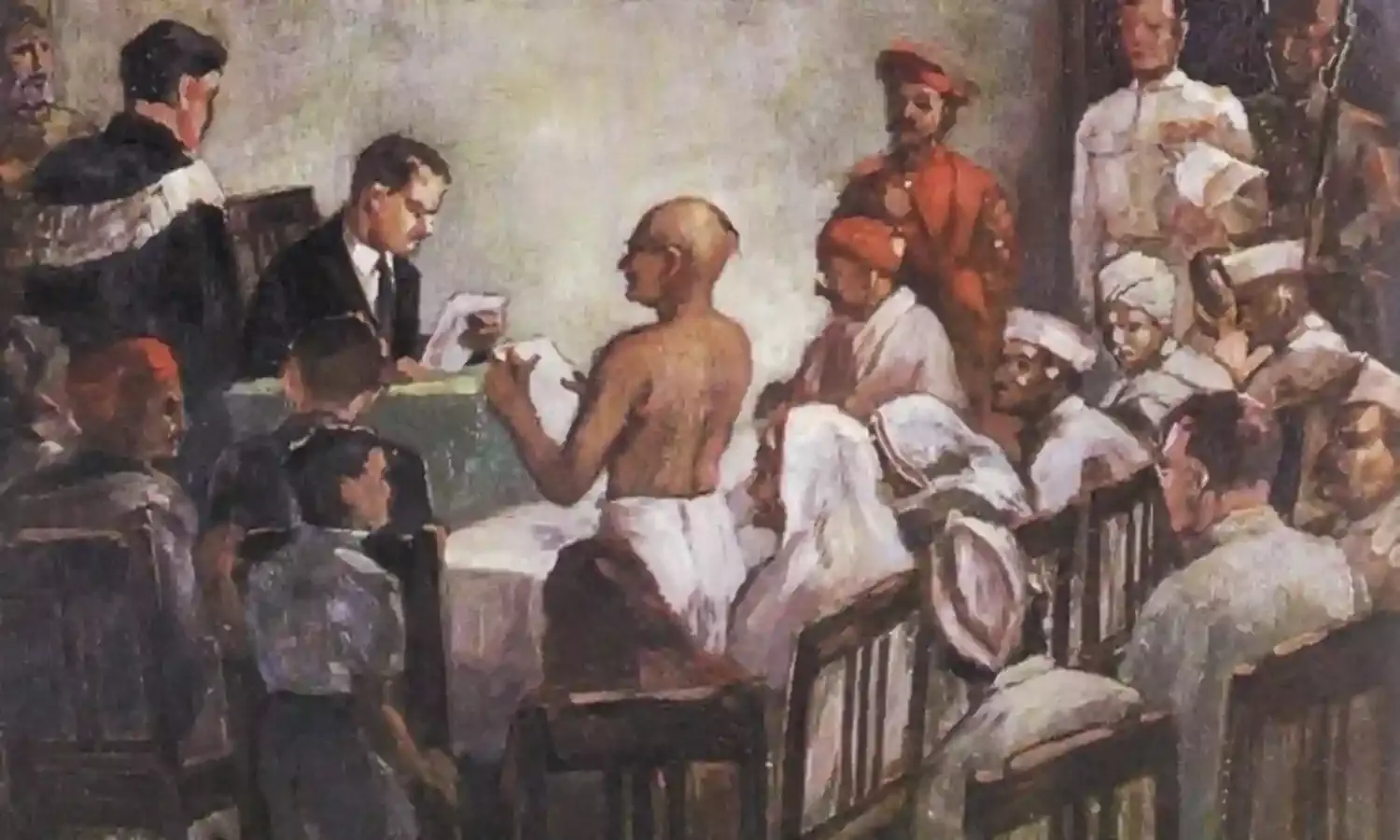The Many Occasions When Gandhi Stood Up to the British for Free Speech
Gandhi the journalist
Prashant Bhushan’s evocation of Gandhi’s 1922 statement before Justice Broomfield was a reminder that the man marching staff in hand for India’s freedom was also, for much of his life, a journalist holding a pen.
In 1903, a 33-year-old Gandhi launched Indian Opinion in South Africa to highlight the “undeserved and unjust” disabilities under which Indians laboured in that land. In his autobiography, Gandhi wrote that during the journal’s “very first month” he had realized that while an “uncontrolled pen” could cause damage, control over a newspaper from without was “more poisonous than want of control”.
He and his Indian Opinion team believed, Gandhi said, “in the righteousness of the cause” they espoused and would “always place before readers” facts “in their nakedness”. (Pyarelal, Mahatma Gandhi, 3: 79)
Much before this, in 1888, Gandhi, then a 19-year-old law student in London, was an avid reader of the liberal Daily News, the conservative Daily Telegraph, and the daring Pall Mall Gazette, the editor of which, William T. Stead, was sent to jail (within months of Gandhi’s arrival) for his role in exposing how prostitutes were being recruited.
Apart from improving Mohandas’s English, London’s newspapers educated him about tensions between workers and bosses in Britain, and between England and Ireland.
In 1919, four years after his return to India from South Africa, Gandhi found himself running two journals in Ahmedabad, Young India and the Gujarati Navjivan. His first direct clash with India’s British rulers had occurred two years earlier, in Champaran in Bihar, where he had gone to assist persecuted indigo-growing peasants.
When, during that clash, Gandhi, 47 at the time, was ordered to leave Champaran, he refused. On April 18, 1917, here is what he told the British magistrate in Motihari, the district headquarters:
I have disregarded the order served upon me, not for want of respect for lawful authority, but in obedience to the higher law of our being – the voice of conscience (15: 345-6).
One of the many across Bihar and all of India animated by this declaration of individual independence was a flourishing barrister in Ahmedabad, the bridge champion of his club, someone named Vallabhbhai Patel.
A baffled Empire chose not to jail Gandhi for his Champaran disobedience. Not only was the expulsion order withdrawn, Gandhi was allowed to continue with his inquiry into the plight of the indigo growers!
Everyone is aware of the Jallianwalla Bagh massacre of April 13, 1919, but how many know or remember that that massacre also involved the right to free speech? Severely curbing free speech, the so-called Rowlatt Act, launched earlier that year, had triggered the nationwide satyagraha, initiated by Gandhi, to which the Empire reacted with that brutal episode in Amritsar.
In December of that year (1919), the Bombay High Court sought an apology from Gandhi for something he had published in Young India. This was how Gandhi replied:
“At the time I decided to publish the document in question, I had fully in mind the honour of journalism as also the fact that I was a member of the Bombay Bar and as such expected to be aware of the tradition thereof…. Much therefore as I would have liked to act upon His Lordship’s suggestion, I feel that I could not conscientiously offer any apology for my action. Should this explanation not be considered sufficient by His Lordship, I shall respectfully suffer the penalty that their Lordships may be pleased to impose upon me.” (Collected Works, 16: 340)
In March 1922, when Gandhi was sentenced for six years, he made the famous response to Justice Broomfield that Prashant Bhushan solemnly and stirringly repeated the other day.
The right to speak freely was once more the issue in October 1940, when over a thousand carefully selected individuals courted arrest in what became known as the Individual Civil Disobedience campaign. Nehru, Patel and many other leaders of the free India of the future were among them. This time they were behind bars for a year.
The first person to court arrest in this campaign was Acharya Vinoba Bhave. Ordered not to report Vinoba’s arrest in his journals, Gandhi suspended their publication! He declared:
Let everyone become his own walking newspaper and carry the good news from mouth to mouth… The idea here is of my telling my neighbour what I have authentically heard. This no Government can overtake or suppress. It is the cheapest newspaper yet devised and it defies the wit of Government, however clever it may be.
Let these walking newspapers be sure of the news they give. They should not indulge in any idle gossip. They should make sure of the source of information, and they will find that the public gets all the information that they need without opening their morning newspaper… (Harijan, 3 Nov. 1940; 79: 330)
Spoken or written words were thus as significant to Gandhi as his Salt March of 1930 or his 1942 Quit India call.
In March 1947, when independence was at hand, Gandhi was in Bihar for restoring communal peace. What then was an undivided Punjab had started to burn. In letters to Nehru and Patel, then running an interim government from Delhi, a troubled Gandhi warned against what he called “the old hush-hush policy” of suppressing news reports. (CW 87: 124).
A climate where people can speak freely and frankly is not easily obtained. But it may strengthen a nation, a society, a political party, a university, an institution or an NGO.
Rajmohan Gandhi is Mahatma Gandhi’s grandson, a historian of repute.





